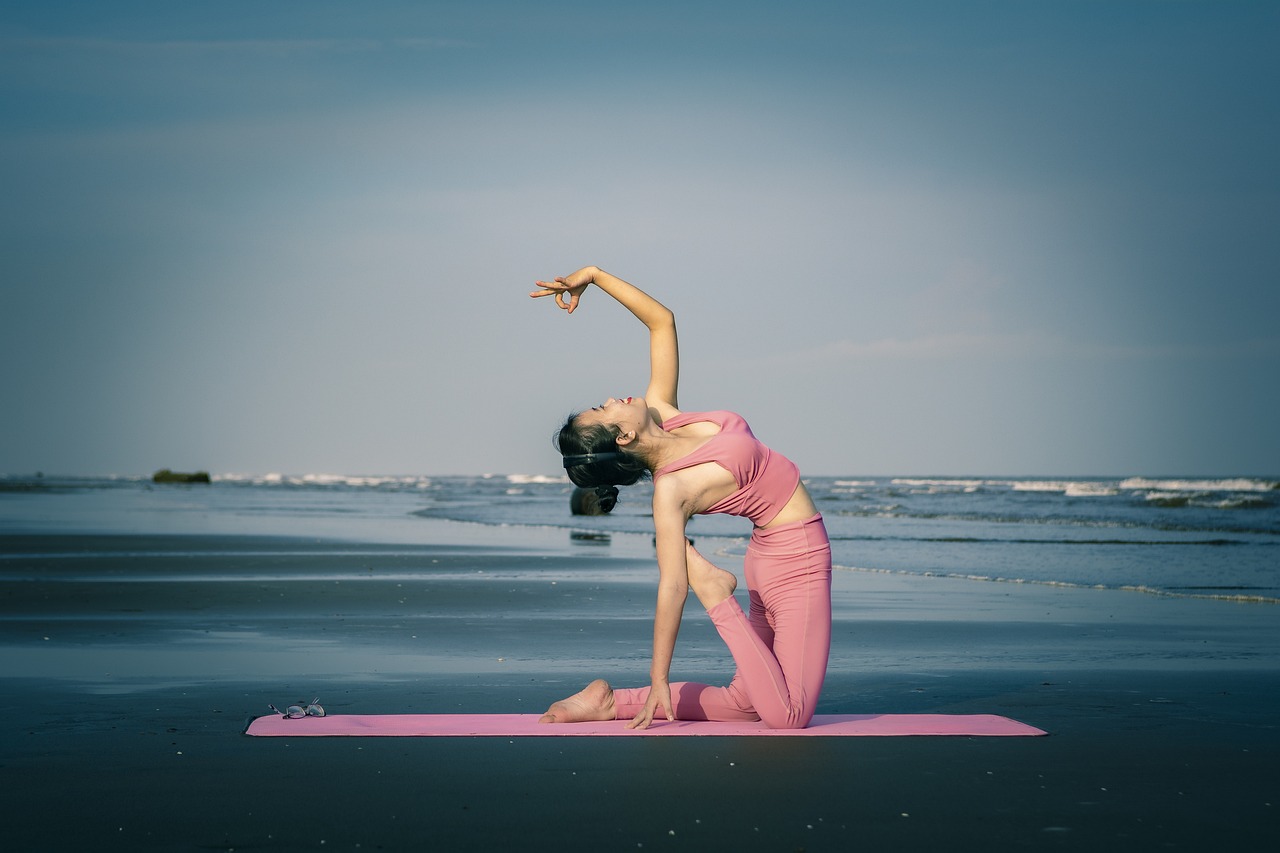Yoga, a practice that has transcended time and culture, is more than just a physical exercise; it is a journey towards mental clarity, spiritual enlightenment, and overall well-being. Understanding the origins of yoga can deepen our appreciation for this ancient art and its profound impact on modern life. This article explains The Importance of Vinyasa Yoga
The practice of yoga dates back over 5,000 years, originating in ancient India. It is rooted in the Indus-Sarasvati civilization, one of the world’s oldest urban cultures. Archaeological findings from this period, such as seals depicting figures in yoga poses, suggest that yoga was practiced in some form even in prehistoric times.
The Importance of Vinyasa Yoga
Vinyasa Yoga, often referred to as “flow” yoga, is a dynamic and energetic form of yoga that emphasizes the connection between breath and movement. Originating from the ancient traditions of Hatha Yoga, Vinyasa has gained immense popularity in modern times due to its versatility and numerous benefits. Whether you are a seasoned yogi or a curious beginner, Vinyasa Yoga offers a path to physical, mental, and spiritual well-being.
Core Principles of Vinyasa Yoga
- Breath-Synchronized Movement
At the heart of Vinyasa Yoga is the synchronization of breath and movement. Each pose is linked to an inhalation or exhalation, creating a seamless flow that enhances awareness and concentration. This breath-centric approach not only improves lung capacity but also fosters a meditative state.
- Flow and Transition
Vinyasa Yoga is characterized by smooth transitions between poses, often described as a “flow.” These continuous movements build heat, increase heart rate, and challenge the body, making Vinyasa a highly effective cardiovascular workout.
- Mindfulness and Presence
Practicing Vinyasa Yoga requires a high level of mindfulness. As you flow from one pose to the next, you remain fully present, attuned to your breath and body. This mindfulness extends beyond the mat, promoting a calm and focused mind in everyday life.
Physical Benefits of Vinyasa Yoga

- Improved Flexibility
Regular Vinyasa practice stretches and lengthens muscles, improving overall flexibility. The diverse range of poses targets different muscle groups, enhancing your range of motion and reducing the risk of injury.
- Enhanced Strength
Vinyasa Yoga builds strength by engaging multiple muscle groups simultaneously. Holding poses such as Plank, Warrior, and Downward Dog requires considerable effort, promoting muscle growth and endurance.
- Better Cardiovascular Health
The dynamic nature of Vinyasa Yoga increases heart rate and promotes cardiovascular health. Regular practice can improve circulation, lower blood pressure, and boost overall heart health.
- Weight Management
By combining strength training and cardio, Vinyasa Yoga helps in managing weight. The consistent movement and flow burn calories, while the muscle-building poses increase metabolism, aiding in weight loss and maintenance.
- Mental and Emotional Benefits
- Stress Reduction
Vinyasa Yoga is an excellent stress-reliever. The combination of movement, breath, and mindfulness activates the parasympathetic nervous system, reducing stress hormones and promoting relaxation.
- Increased Focus and Concentration
The practice of linking breath with movement sharpens focus and concentration. This heightened awareness can enhance productivity and cognitive function, benefiting all areas of life.
- Emotional Balance
Vinyasa Yoga encourages emotional balance by fostering a deeper connection with oneself. The practice allows for the release of pent-up emotions and promotes a sense of inner peace and stability.
- Enhanced Sleep Quality
Regular Vinyasa practice can improve sleep quality. The physical exertion helps tire the body, while the mindfulness and relaxation techniques calm the mind, making it easier to fall asleep and stay asleep.
Spiritual Benefits
- Connection with Inner Self
Vinyasa Yoga offers a pathway to connect with your inner self. Through mindful practice, you develop greater self-awareness and a deeper understanding of your thoughts and emotions.
- Development of Intuition
The practice enhances your intuition, helping you make better decisions in life. By tuning into your inner self, you become more attuned to your needs and desires.
- Spiritual Growth
For many practitioners, Vinyasa Yoga is a spiritual jou rney. It provides a space for introspection and growth, helping you cultivate a sense of purpose and meaning in life.
Different Styles within Vinyasa Yoga
- Power Vinyasa
Power Vinyasa is a vigorous style that focuses on building strength and stamina. It is ideal for those looking for a challenging workout that combines intense movement with mindful breathing.
- Slow Flow Vinyasa
Slow Flow Vinyasa emphasizes slow, deliberate movements. It is perfect for beginners or those looking to deepen their practice through a more meditative and relaxed approach.
- Jivamukti Yoga
Jivamukti Yoga is a form of Vinyasa that incorporates spiritual teachings, chanting, and meditation. It offers a holistic approach to yoga, blending physical practice with spiritual growth.
- Baptiste Yoga
Baptiste Yoga is a power Vinyasa style that combines rigorous asanas with meditation and self-inquiry. It is designed to build physical strength, mental clarity, and spiritual awareness.
Conclusion
Vinyasa Yoga is more than just a physical exercise; it’s a holistic practice that nurtures the body, mind, and spirit. By integrating breath with movement, Vinyasa Yoga creates a dynamic flow that enhances flexibility, strength, and cardiovascular health while promoting mental clarity and stress relief. Whether you’re a beginner or an experienced yogi, the adaptable nature of Vinyasa Yoga makes it accessible and beneficial for everyone. Embracing this practice can lead to profound improvements in your overall well-being, fostering a deeper connection between your body and mind. So, unroll your mat, synchronize your breath with movement, and experience the transformative power of Vinyasa Yoga. Namaste.